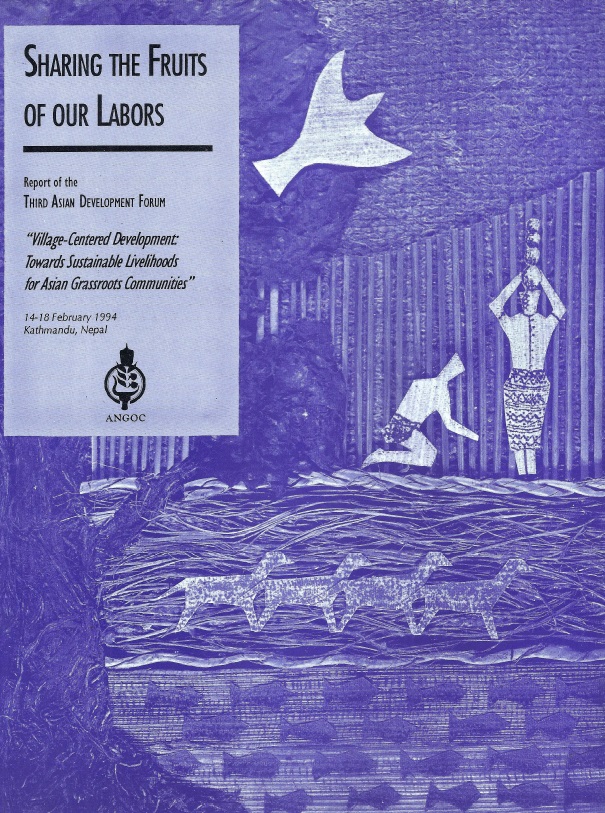
Never in history has the world experienced so much economic progress. Yet, never has there been a time when one-fifth of its population wallow in utmost poverty. The current growth-centered economic development paradigm adopted by institutions (e.i., governments, international financial institutions, multinational corporations), which prescribed production, profits and tickle down prosperity as the cure-all poverty only further accelerated environmental and social disintegration. In their quest to maximize economic gains, the moneyed elites and their institutions all but discarded the traditional values of long-enduring communities and villages.
Instead, we have created a society that worships money and transforms life into monetary value with relentless efficiency. Our collective obsession on acquiring money as the defining purpose of human society is both cause and consequence of our alienation from the spiritual and nature of life, including our own.
Pushed by the failure of conventional economic practice, there is global effort to build a commitment to an alternative people’s vision of human progress built on just and sustainable human societies. As people become increasingly alienated from their spiritual connection to nature and community, an alternative theory rediscovers the past where in economic and technological progress is balanced with societal, ecological, and human development concerns. Thus the Asian NGO Coalition organized the Third Asian Development Forum (14-18 February 1994; Kathmandu, Nepal) with the theme of Village-Centered Economics: Towards sustainable Livelihoods for Asian Grassroots Communities.
This report “Sharing the Fruits of Our Labors“ features three strategic areas: a) community (social) enterprises in contrast to business enterprises; b) financial intermediation mechanisms for the rural poor; and c) alternative economic accounting systems.
The Asian Development Forum is a five-year annual conference which gathers key development thinkers and practitioners to discuss key issues critical to the Asian Region.
